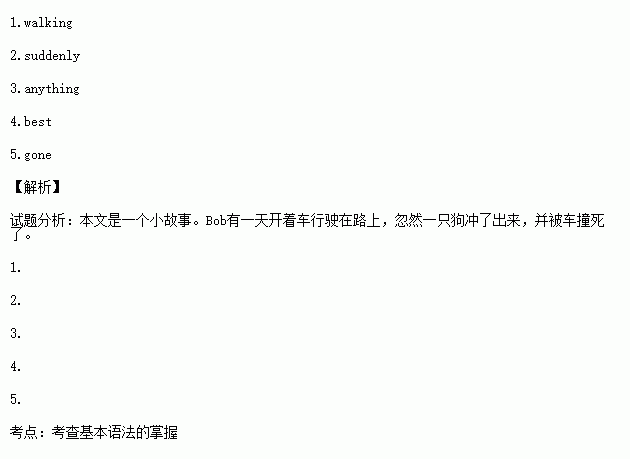题目内容
One Saturday, Bob decided to take a drive through the countryside. After a few hours, he saw a dog ___1.____ (walk) behind a man on the side of the road. As the car came near them, the dog ___2.____ (sudden) jumped into the road. Of course, the car hit the poor animal and killed it.
Bob stopped his car and walked up to the man. “I’m very sorry that this happened,” he said. “Is there ___3.___ (something) I can do? Will $10 help?”
“Oh, but…”said the man. “I should tell you…”
“Stop! You are right. $10 isn’t enough! That dog was your ____4.____ (good) friend!”
Bob reached into his pocket and gave the man $30.Then he thanked the man and drove away. When he was _____5._(go), the man looked down at the dog and said : “I wonder whose dog that is?”
 通城学典默写能手系列答案
通城学典默写能手系列答案
